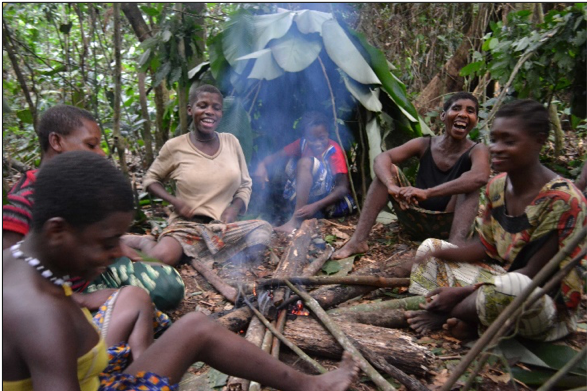First published on 10/05/2014, and last updated on 03/05/2018
The traditional inhabitants of many ICCAs possess an intimate, synergic relationship with the territories they occupy and share a history with. Over time, this close interaction has defined the values and shaped the social organization of these communities. It has generated sophisticated environmental knowledge systems, cultural practices and beliefs which reflect a deep understanding of often complex and fragile landscapes. Undoubtedly, just as the continuity of these societies depends on the integrity of the lands they inhabit, the reverse is also true: the conservation and appropriate use of these areas can best be secured through the vitality of the cultural heritage of their occupants.
However, today many ICCA communities face a common threat: their traditional ways of life have come under immense pressure and the continuity of their ancestral knowledge and cultural practices are being undermined. The destruction of their territories not only undercuts their economies and impoverishes their livelihoods, but it also deprives them of significant places where lessons are taught and stories transmitted. Acculturation through media and the education system as well as the exodus of youth to the cities further disrupt the transmission of time-honored values, knowledge and techniques, including those related to the protection of their territories’ biodiversity. To reverse the rapid erosion of their cultures, and to adapt to radical change while retaining their distinct identities, is a daunting challenge for most indigenous peoples and traditional societies.
Collaborating with Indigenous youth and elders in the most varied environments, we have been able to corroborate that both age groups, when given the opportunity to come together and join forces, show an intense eagerness to tackle this challenge and can indeed become powerful agents of change for their communities. We have often seen how, properly channeled, the creativity, restlessness and courage of the young combines with the experience and historical memory of the elders to start processes of deep reflection and search for solutions, inspiring future visions that are at once innovative and at the same time respectful of traditional values and protective of the land.
Most impressive is the level of commitment that can be attained by the young after a very short time. In a recent experience in the Central African Republic, we started an initiative with a group of young men and women as well as elders from the indigenous forest dwelling BaAka and the riverine Sangha Sangha living in the Dzanga Sangha Protected Area (part of The Tri-national de la Sangha World Heritage Site). After a two-week workshop the process was interrupted by the political and communal violence that swept the country and which lasts until today. Nevertheless, in spite of the precarious situation, that single experience inspired the group to the point that they have since continued to work together, supported by a young local team consisting of Marie-Noella Kango (one of only three BaAka in the country to have finished high school) and José Martial Betoulet (Sangha Sangha). The youth group, which now calls itself Djima Kali (Forest and River) has participated in workshops dealing with cultural and land rights, traditional fishing techniques, and medicinal plants or with the making of music instruments and other crafts made of forest products. They have also started to become social multipliers, participating in regional cultural events and using theatre to generate discussion in the villages on the subjects of indigenous rights and the protection of the forest.
The ICCA Consortium is well placed to support initiatives that foster cultural transmission and empower indigenous youth and their communities to become active protagonists in the protection, promotion, and management of their natural and cultural heritage and in the defence of their rights. Guided by the elders and traditional knowledge holders, they can grow to become the well-informed, self-confident and committed leaders that will enable effective self-governance of customary territories.
